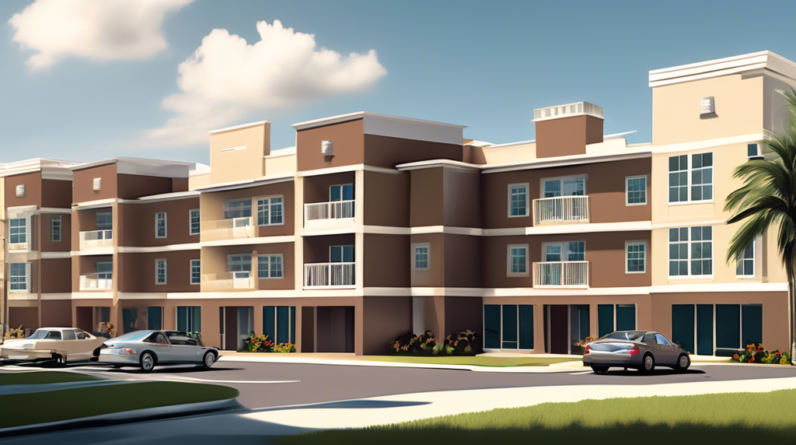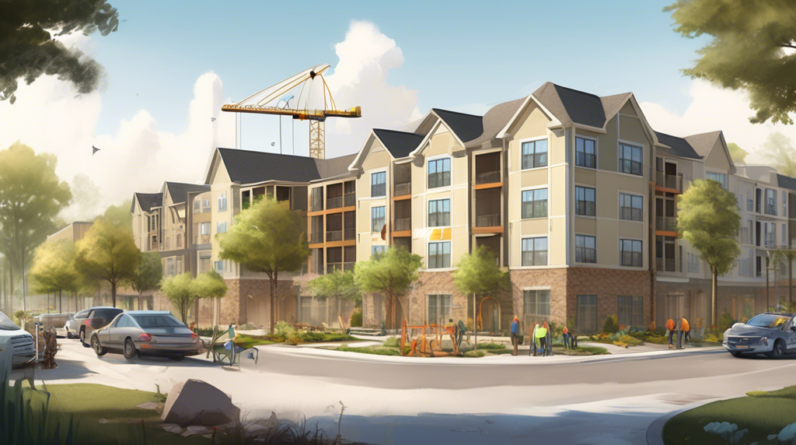Is Florida’s Housing Market Headed for Trouble? Here’s What the Statistics Reveal
As the state of Florida grapples with a dynamic housing market, recent statistics suggest a mix of both challenges and opportunities are shaping the landscape. From rising inventory levels to fluctuating home prices, various metrics paint a complex picture. Let’s delve into the key factors influencing Florida’s housing market and what they could mean for buyers, sellers, and investors.
Housing Inventory Increase
Housing inventory in Florida has seen a significant uptick, jumping by 34% year-over-year – the highest increase in the nation. This surge is especially pronounced in Southwest Florida, with areas like Cape Coral and Fort Myers experiencing a notable rise in available homes. These regions were severely impacted by Hurricane Ian in September 2022, contributing to the elevated inventory levels as rebuilding efforts continue.
Foreclosure Trends
Foreclosures are on the rise in Florida, particularly in Lakeland, Orlando, and Miami. According to ATTOM, South Florida has witnessed a nearly 50% increase in foreclosures compared to February 2022. This trend raises concerns about the financial stability of homeowners and the potential long-term impact on the housing market.
Home Prices in South Florida
Home prices in South Florida have hit historic highs, reflecting strong demand in the region. In Miami-Dade County, the median sales price for houses has reached $650,000, while condos command a median price of $420,000. Broward County exhibits similarly high prices, with houses at a median price of $625,000 and condos at $290,000. These elevated prices could make affordability a growing issue for potential buyers.
Commercial Real Estate
The commercial real estate sector in Florida is undergoing significant transformations. The robust economy and population growth have fueled the commercial real estate market, making it an essential focus for home builders. However, concerns about the impact on the banking industry and the wider economy are emerging, prompting cautious optimism among stakeholders.
Jacksonville Market
The housing market in Jacksonville is showing signs of slowing down. Homes in this metro area are staying on the market for longer periods, making it the sixth slowest metro area for selling homes in the U.S. in 2024, according to a study by Creditnews. This slowdown could indicate a potential cooling off in what has been a hot market for the past few years.
Sarasota Commercial Portfolio
In Sarasota, a nine-building commercial portfolio is available for $76.8 million. This portfolio includes six properties within a 1-mile radius on Cattleman and Fruitville roads, near Interstate 75. The availability of such a large portfolio on the market may signal strong commercial interest or shifting investment strategies in the region.
Orlando Housing Permits
Despite the increasing population in the Orlando metro area, fewer housing permits are being filed. This trend is intriguing given the high demand, and it may suggest a cautious approach from developers in responding to market conditions. The disparity between demand and permit filings warrants close monitoring to understand its implications fully.
Conclusion
Florida’s housing market is certainly at a crossroads, with various trends and statistics revealing both opportunities and potential challenges. From rising foreclosures and slowing markets to high home prices and commercial real estate dynamics, stakeholders must navigate these complexities carefully. Keeping an eye on these evolving factors will be crucial for making informed decisions in Florida’s ever-changing housing market.







